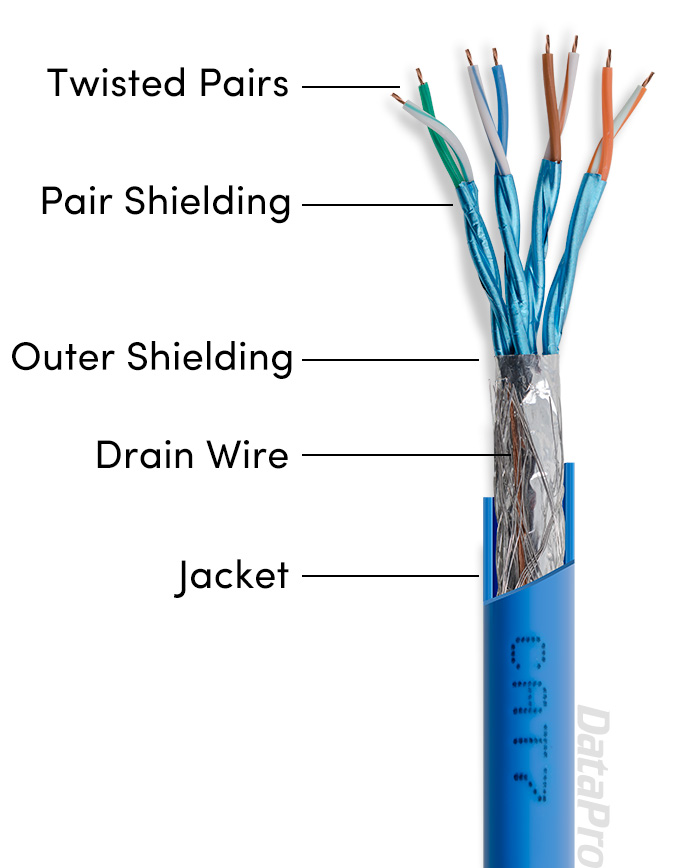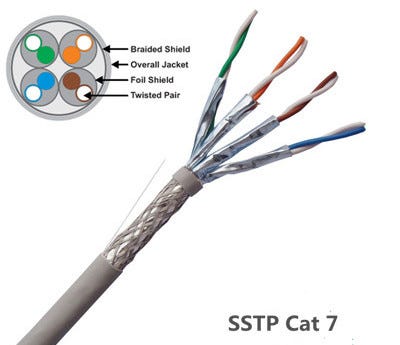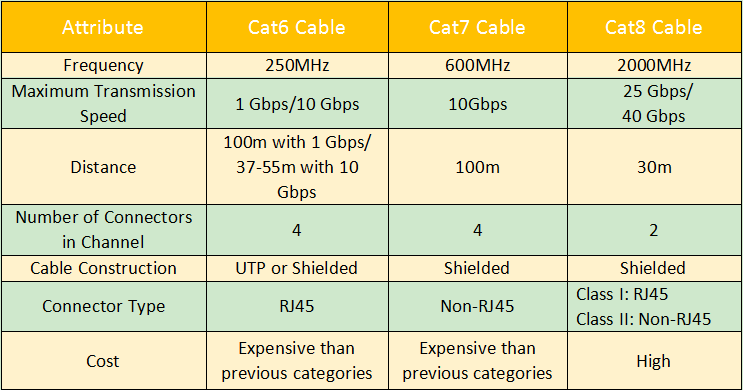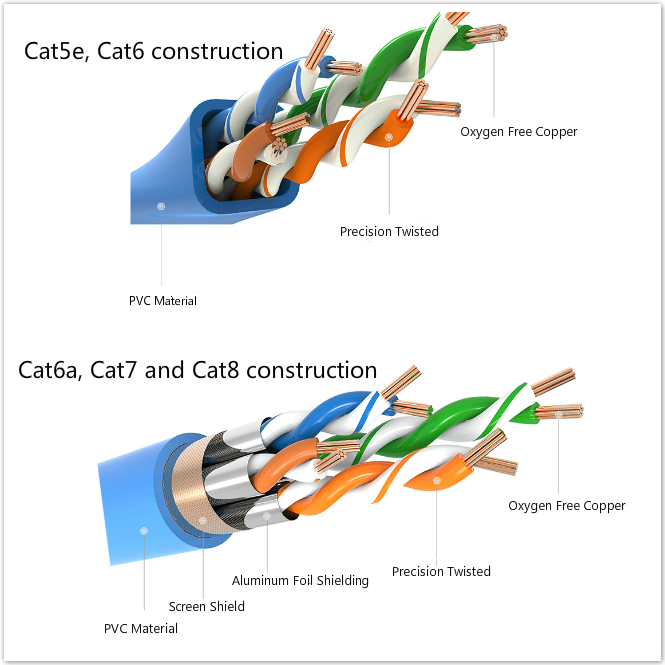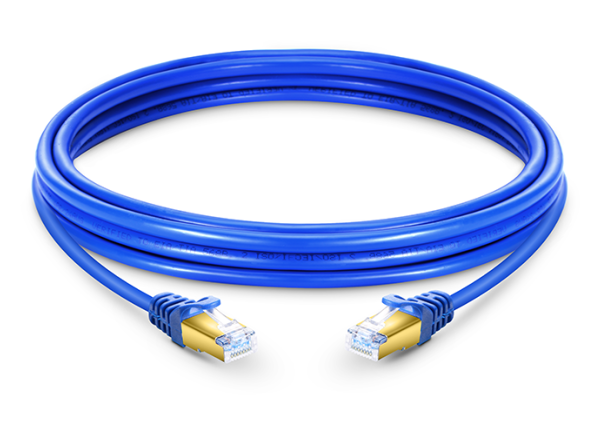Just be aware that working with cat 7 cabling requires a little more finesse that working with cat 5e or cat 6 cables mainly because it s easier to damage the foil shielding when bending cat 7 cables.
Cat 7 cable speed limit.
Nothing changed physically in the cable itself.
This cable offers a maximum speed of 1gbps but improves over cat 5 and cat 5e.
It supports a frequency of up to 2ghz 2000 mhz.
A cat 7 cable offers performance of up to 600mhz.
Cat 5 is also used to carry other signals such as telephony and video.
It is limited up to the 30 meter 2 connector channel.
A further difference within the ethernet cables whether cat 5 cat 5e cat 6 cat 6e or cat 7 can be whether solid or stranded wires are used within the cable.
A category 7 cable more commonly known as a cat 7 or cat 7 cable is used for the cabling infrastructure of gigabit ethernet.
Category 8 cat8 cable or cat 8 cable is an ethernet cable which is a different type of cable standing apart from the previous cables.
The cable standard specifies performance of up to 250 mhz compared to 100 mhz for cat 5 and cat 5e.
Cat 6 has to meet more stringent specifications for crosstalk and system noise than cat 5 and cat 5e.
Cat7 cable is otherwise called category 7 ethernet cable.
Category 5 cable cat 5 is a twisted pair cable for computer networks since 2001 the variant commonly in use is the category 5e specification cat 5e the cable standard provides performance of up to 100 mhz and is suitable for most varieties of ethernet over twisted pair up to 1000base t gigabit ethernet.
It requires shielded cabling as well.
Cat 7 category 7 cable category 7 cable cat7 iso iec 11801 2002 category 7 class f is a cable standard for ultra fast ethernet and other interconnect technologies that can be made to be backwards compatible with traditional cat5 and cat6 et.
Category 5 cat 5 and category 5 enhanced cat 5e are actually basically the same.
It offers a 100 meter 4 connector channel using shielded cabling and has been designed to transmit signals at a frequency of 600 mhz.
It supports high speed ethernet communication up to 10 gbps.
Cat 7 cables are the latest to hit the networking market and enable speeds of up 10 gigabits per second gbps.
As the description implies a solid cable uses a single piece of copper for the electrical conductor within each wire of the cable whilst stranded wire uses a series of copper strands.
Cables based on this standard are a step up from cat 6 versions by supporting twice the maximum bandwidth.
Category 6 cable cat 6 is a standardized twisted pair cable for ethernet and other network physical layers that is backward compatible with the category 5 5e and category 3 cable standards.

